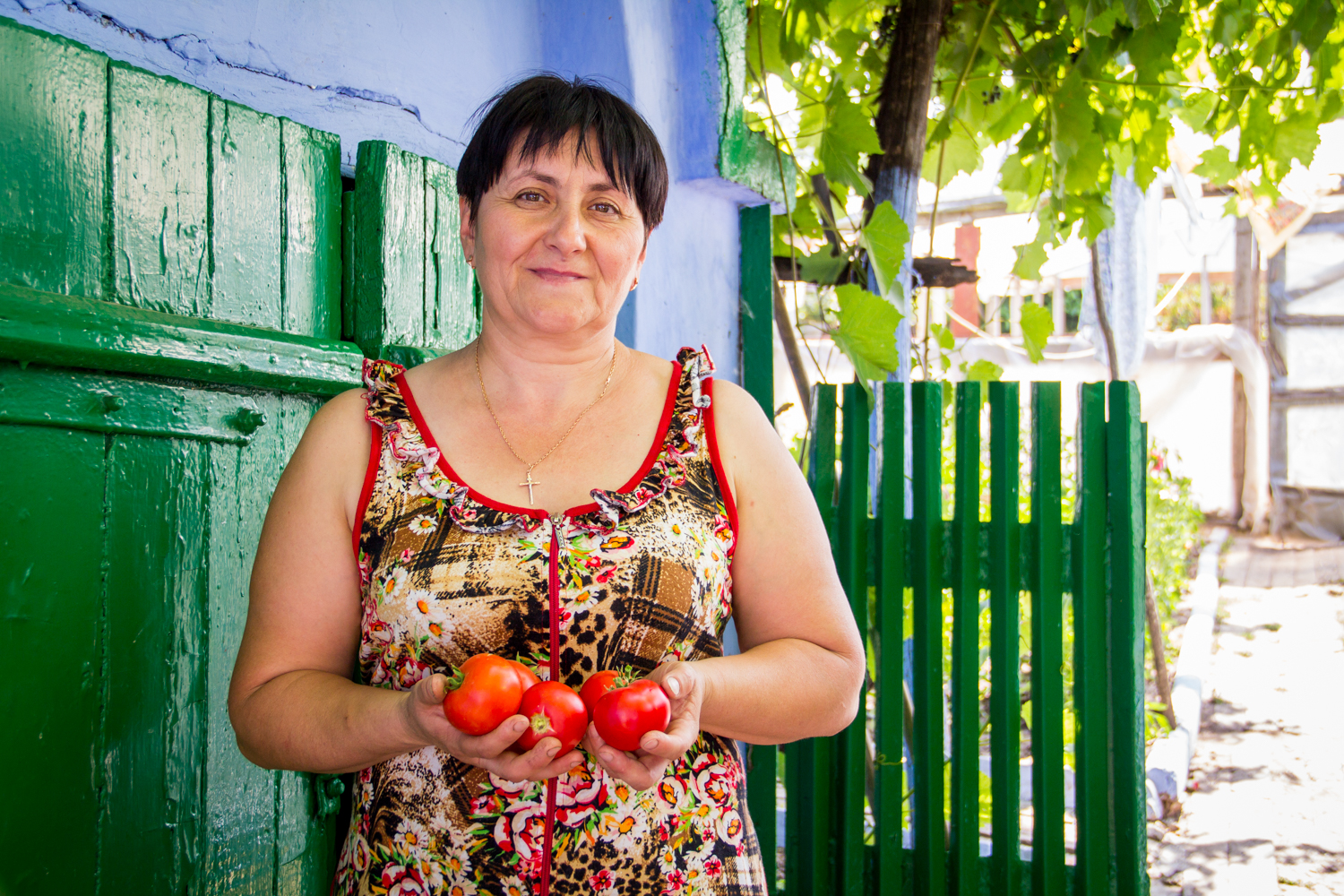How can we design products based on feedback we’re hearing from clients? This was the question the HOPE Ukraine team sought to answer at a three-day retreat in July, using a process based on IDEO’s human-centered design approach. After collecting client feedback, HOPE Ukraine wanted to step back and brainstorm ideas based on their potential impact on clients. According to Dan Williams, HOPE’s director of spiritual integration:
It can be really easy to go into an operational mindset, to start problem solving, and to think about ideas from the perspective of, “Will it work?” without letting ourselves live in that space of, “What are our clients saying is important to them, and can we find a way to make it work even if our immediate response is that it would be tough?”
The process
First, the team dived into client feedback and came up with a number of observations, which they grouped into themes.
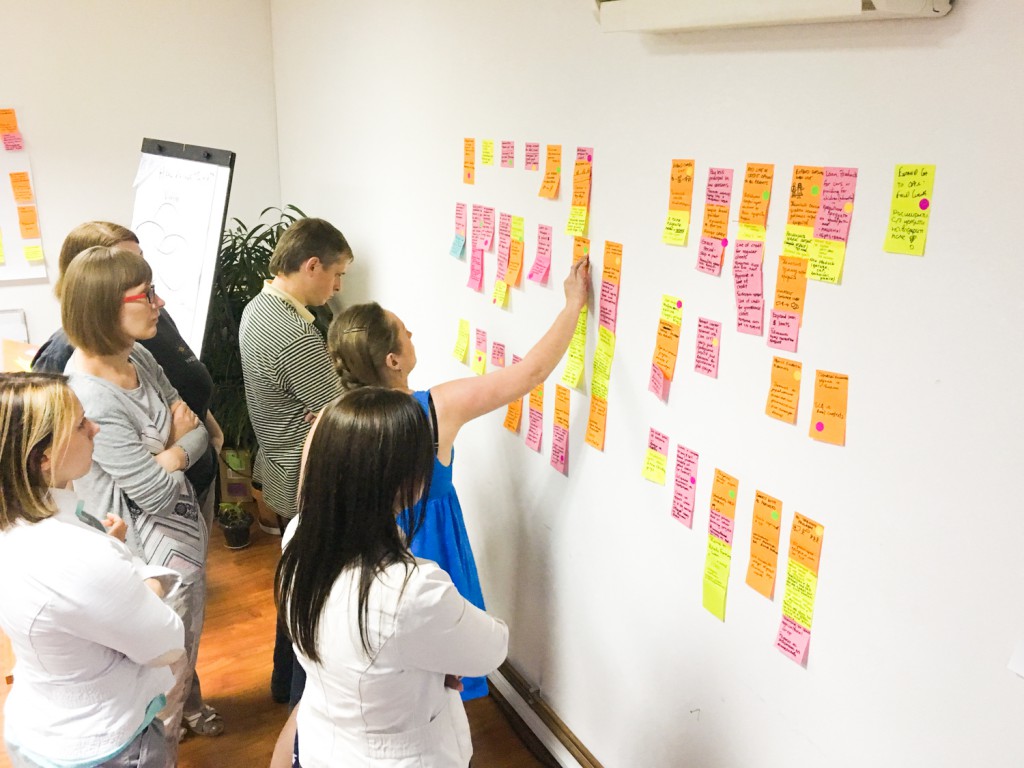
These observations led to several “How might we…” questions to start asking how HOPE Ukraine might meet these needs. Out of these, the team chose a few questions to develop further, including, “How might we expand or increase our impact through providing other non-lending services?”
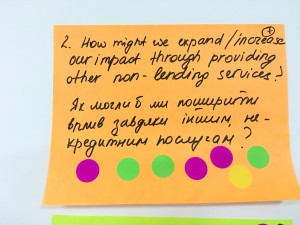
The story
From this question, one group pursued the idea of a greenhouse incubator, a working greenhouse that would train farmers in the skills needed to successfully run a greenhouse. To help think through the idea, they invented the hypothetical Volodya family, who’ve worked their fields for years but don’t have the technical knowledge to develop greenhouse farming. Their son, Volodya Jr., graduated from college but doesn’t have a job—a common problem in Ukraine that’s led many young people to leave home in search of work.
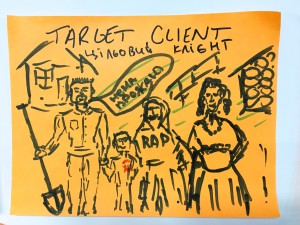
The team mapped out Volodya Jr.’s potential interaction with the incubator, starting with hearing about the project, visiting it, and deciding to join.
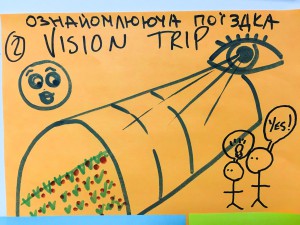
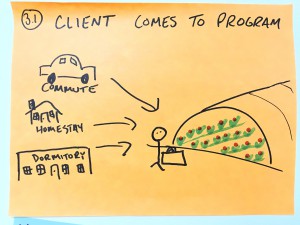
As Volodya Jr. received classroom and on-the-job training, he’d also be discipled by facilitators and develop or deepen his relationship with God.
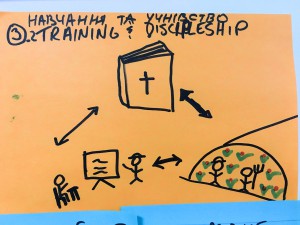
At the end of the training, Volodya Jr. would graduate—and receive his share of the greenhouse’s profits. The graduates might even decide together how to tithe a portion of their income.
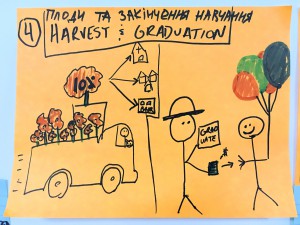
Once Volodya Jr. graduated, he could either start his own greenhouse incubator, passing on the knowledge he’d gained, or help his family move into greenhouse farming on their own land.

Over the next few months, the HOPE Ukraine team will explore these ideas further, tabling some and refining others to be piloted with clients. While they may find that a greenhouse incubator isn’t the best way to meet the needs of clients, the exercise provided a helpful framework to think about the story they’re trying to work toward and the impact they’re hoping to see.






